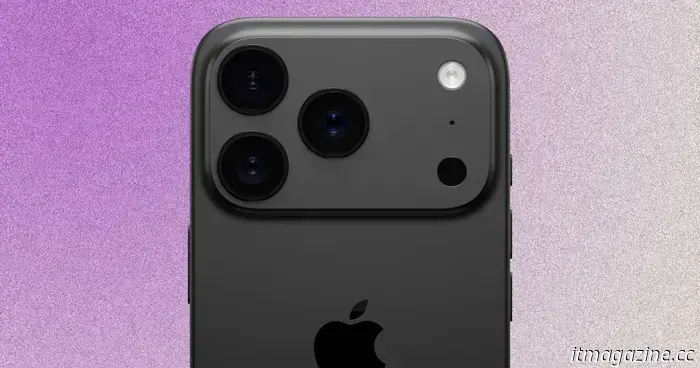
As AI inundates music platforms, Deezer is taking a stand — in contrast to Spotify.
AI-generated songs from tools like Suno and Udio are inundating Deezer, prompting the French music streaming service to respond. On Wednesday, Deezer reported that over 20,000 fully AI-produced tracks are being uploaded daily. This bot-generated music now constitutes 18% of the total uploaded content, nearly double the 10% figure reported in January.
Aurelian Herault, Deezer’s chief innovation officer, noted that the influx of these AI-generated songs is a problem that shows "no sign of slowing down." In January, Deezer introduced a tool designed to detect AI-generated music, which can recognize songs created using various popular generative AI models like Suno and Udio that convert text prompts into music.
Thanks to this tool, Deezer is already “removing fully AI-generated content from algorithmic recommendations,” according to Herault. The company also intends to create a tagging system for entirely AI-generated content, as mentioned in January.
Deezer’s initiative stands out in an industry that largely appears to be ignoring the issue. Competitor Spotify has yet to develop a similar tool for tracking AI-generated music and has not publicly undertaken any efforts to label such content.
CEO Daniel Ek previously stated that AI-created tracks were permissible on the platform, unless they imitated actual artists. However, reports suggest that Spotify has been ineffective in identifying and eliminating these AI-generated imitations.
Other streaming services like Apple Music, Amazon Music, and Tidal have remained largely silent on the matter.
It is perhaps not surprising that major music streaming platforms are hesitant to act, given that there are currently no regulations governing the influx of AI-generated music, nor is there a consensus on what types of artificial music are deemed acceptable.
Last year, a consortium of US record labels filed a lawsuit against Suno and Udio for alleged copyright infringement on a “massive scale.” Nevertheless, these companies argue that training their models on copyrighted music qualifies as “fair use,” a common legal argument made by AI companies.
“Generative AI has the potential to positively impact music creation and consumption, but we must approach its development responsibly and carefully to protect the rights and revenues of artists and songwriters, while ensuring transparency for fans,” stated Herault.
Other articles
 The Galaxy S25 does not appear to be the success that Samsung had hoped for.
Data indicates that Samsung is just slightly ahead of Apple in terms of market share, as their strategies may not have performed as anticipated.
The Galaxy S25 does not appear to be the success that Samsung had hoped for.
Data indicates that Samsung is just slightly ahead of Apple in terms of market share, as their strategies may not have performed as anticipated.
 A new render of the iPhone 17 Pro leaves us speculating about its final design.
A new render of the iPhone 17 Pro has surfaced, reinforcing the notion that it will not feature a two-toned rear.
A new render of the iPhone 17 Pro leaves us speculating about its final design.
A new render of the iPhone 17 Pro has surfaced, reinforcing the notion that it will not feature a two-toned rear.
 NYT Strands today: clues, spangram, and solutions for Thursday, April 17.
Strands offers a challenging twist on the traditional word search from NYT Games. If you're having difficulty and can't figure out today's puzzle, we've got assistance and clues for you right here.
NYT Strands today: clues, spangram, and solutions for Thursday, April 17.
Strands offers a challenging twist on the traditional word search from NYT Games. If you're having difficulty and can't figure out today's puzzle, we've got assistance and clues for you right here.
 How Trump's tariffs may alter the future landscape for Chinese technology companies.
On Monday, January 20, President Donald Trump was officially inaugurated for his second term at the US Capitol. Present at the inauguration were various foreign dignitaries.
How Trump's tariffs may alter the future landscape for Chinese technology companies.
On Monday, January 20, President Donald Trump was officially inaugurated for his second term at the US Capitol. Present at the inauguration were various foreign dignitaries.
 Tips from an expert on how to view the Lyrid meteor shower this weekend.
A specialist from the Royal Astronomical Society describes how to achieve the optimal view of the Lyrid meteor shower.
Tips from an expert on how to view the Lyrid meteor shower this weekend.
A specialist from the Royal Astronomical Society describes how to achieve the optimal view of the Lyrid meteor shower.
 Microsoft's Copilot Vision AI is now available for free, but only on these 9 websites.
Microsoft's Copilot AI is now capable of observing your screen while you browse, allowing you to ask it questions regarding your activities.
Microsoft's Copilot Vision AI is now available for free, but only on these 9 websites.
Microsoft's Copilot AI is now capable of observing your screen while you browse, allowing you to ask it questions regarding your activities.
As AI inundates music platforms, Deezer is taking a stand — in contrast to Spotify.
Deezer has provided an update regarding its initiatives to eliminate AI-generated music, distinguishing the French platform from the streaming leader Spotify.
